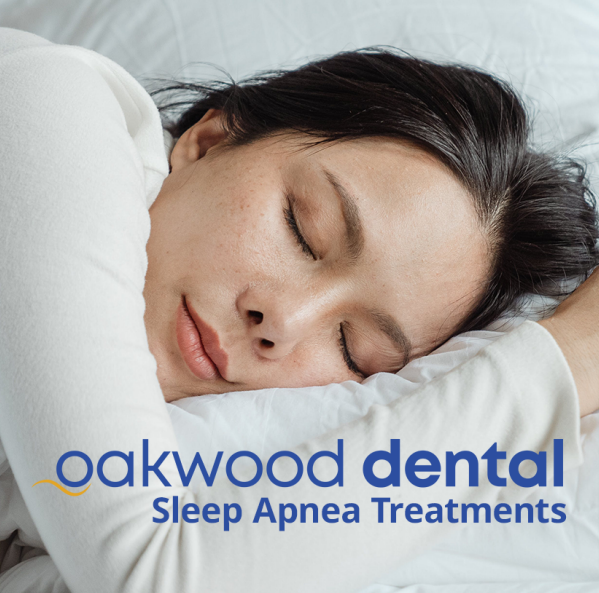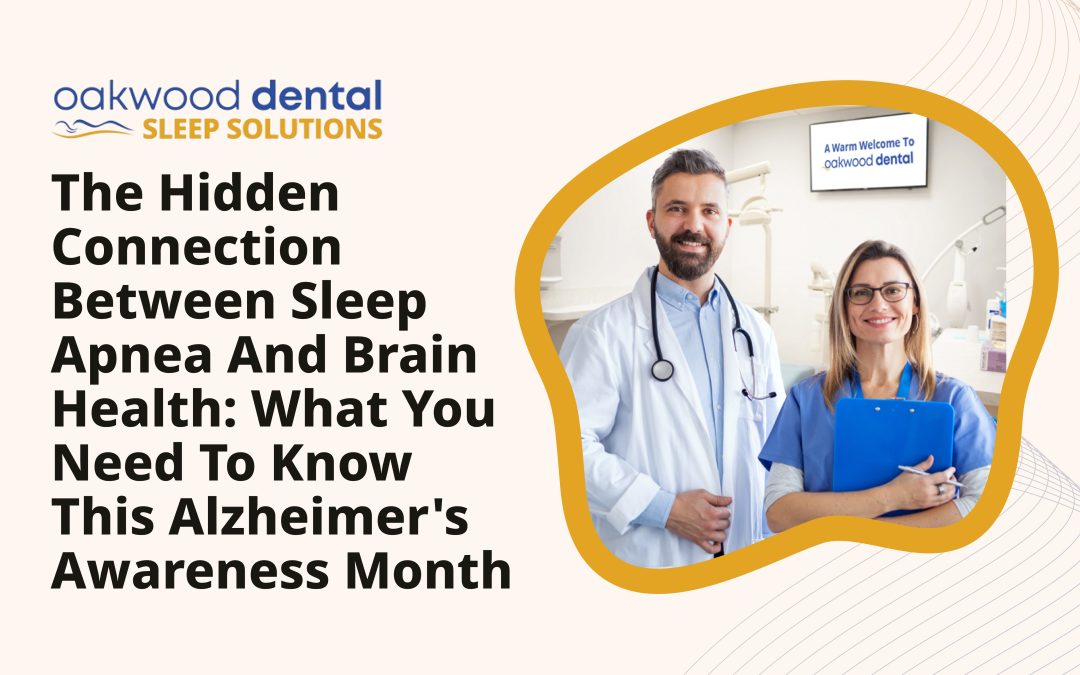June marks Alzheimer’s and Brain Awareness Month, making it the perfect time to explore a critical yet often-overlooked factor in cognitive health: sleep quality. While many people focus on diet, exercise, and mental stimulation to protect their brains, few realize that the quality of their sleep—specifically, untreated sleep apnea—could be silently undermining their cognitive function and increasing their risk of dementia.
Understanding Obstructive Sleep Apnea
Obstructive Sleep Apnea (OSA) is more than just loud snoring or restless nights. This serious sleep disorder occurs when your airway repeatedly becomes blocked during sleep, causing your breathing to stop and start throughout the night. Each time this happens, your oxygen levels drop, and your brain is forced to wake you up just enough to resume breathing—often without you even realizing it.

This cycle can repeat hundreds of times per night, leaving you exhausted and your brain deprived of the restorative sleep it desperately needs.
The Sleep Apnea-Brain Health Connection
Recent research has revealed alarming connections between untreated sleep apnea and cognitive decline. Here’s what scientists have discovered:
Immediate cognitive effects include memory problems, difficulty concentrating, and impaired decision-making abilities. Many people with sleep apnea report feeling foggy or mentally sluggish during the day.
Long-term brain health risks are even more concerning. Studies suggest that untreated sleep apnea may accelerate brain aging and significantly increase the risk of developing Alzheimer’s disease and other forms of dementia.
The mechanism behind this connection is particularly troubling. During deep sleep, your brain naturally clears away harmful waste proteins, including beta-amyloid—one of the key markers of Alzheimer’s disease. When sleep apnea disrupts this critical cleaning process night after night, these toxic proteins can accumulate, potentially setting the stage for cognitive decline years or even decades later.
Treatment Options: Beyond CPAP
The gold standard treatment for sleep apnea has long been CPAP (Continuous Positive Airway Pressure) therapy, which uses a machine to deliver steady air pressure through a mask to keep your airway open. While highly effective, many patients find CPAP machines uncomfortable, noisy, or difficult to travel with.

Fortunately, oral appliance therapy offers a compelling alternative for many patients. These custom-fitted devices work by gently repositioning your jaw and tongue to keep your airway open during sleep. They’re comfortable, quiet, portable, and often preferred by patients who struggle with CPAP compliance.
The Importance of Professional Treatment
Sleep apnea treatment requires specialized expertise and coordination between different healthcare providers. Board-certified dental sleep medicine practitioners work closely with physicians to ensure comprehensive care that’s both safe and effective for each patient’s unique needs.
Proper treatment involves thorough evaluation, custom device fitting, ongoing monitoring, and adjustments as needed to ensure optimal results.
Warning Signs to Watch For
If you or a loved one experience any of these symptoms, it may be time to consider a sleep apnea evaluation:
- Loud, persistent snoring
- Gasping or choking during sleep
- Excessive daytime fatigue despite adequate sleep time
- Morning headaches
- Difficulty concentrating or memory problems
- Irritability or mood changes
- Restless sleep or frequent wake-ups
Taking Action for Your Brain Health
This Alzheimer’s and Brain Awareness Month, consider making your sleep health a priority. Treating sleep apnea isn’t just about getting better rest—it’s about protecting your cognitive function and potentially reducing your risk of dementia later in life.
If you suspect you or a loved one might have sleep apnea, don’t wait. Early intervention can make a significant difference in both your immediate quality of life and your long-term brain health. The investment in proper sleep treatment today could pay dividends in preserved cognitive function for years to come.
Remember: taking care of your brain means taking care of your sleep. When you sleep well, you’re giving your brain the best chance to stay healthy, sharp, and resilient as you age.

Conclusion
Don’t let untreated sleep apnea put your cognitive health at risk. At Oakwood Dental Sleep Solutions, we specialize in comprehensive sleep apnea treatment, offering both CPAP therapy and comfortable oral appliance alternatives. Our team works closely with your physician to ensure you receive the most effective treatment for your individual needs.
Ready to protect your brain health and improve your quality of life? Contact Oakwood Dental Sleep Solutions today at 718-356-9800 to schedule your free consultation and take the first step toward better sleep and a healthier future.

